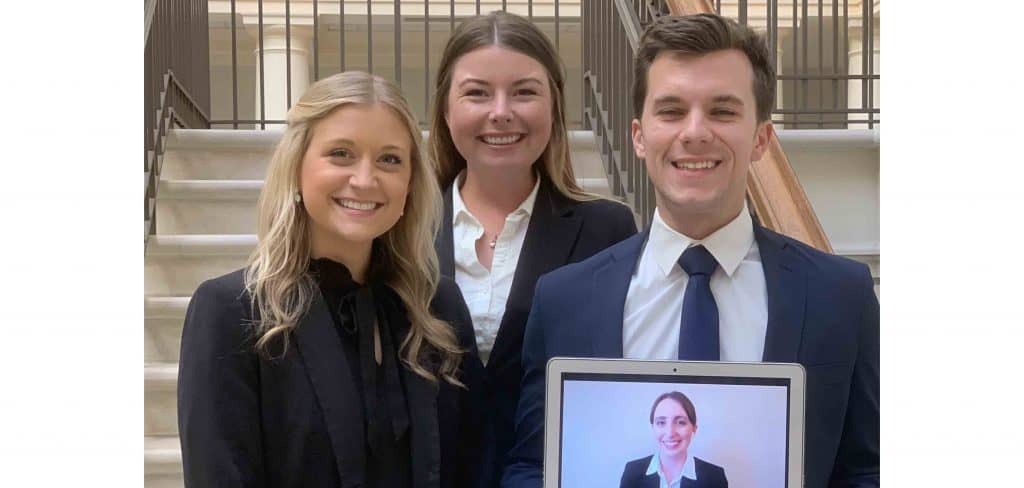“I am most impressed by the tireless efforts of the members of this team from preparation to the final round of the competition,” said Mark Martin, dean of Regent University School of Law. “They are most deserving to be called national champions, and the Regent Law community is honored by their efforts.”
The competition, hosted by Stetson University in Gulfport, Florida, took place virtually from September 30 through October 3. Regent’s team consisted of Steven Thomas (Chair), Morgan Ewing (Vice-Chair), Kimberly Sloan Minor, and Jasmine White and was coached by Marcus and Arielle Mitchell. Marcus was on the winning team in 2018 and 2019, including winning the award for Best Oral Advocate in 2018. Arielle competed and won as a student in 2018 and won a Best Brief award. She coached the Fall 2019 winning team with adjunct professor Drew Page. Ewing competed in this event in 2020, and Thomas had gained experience in a separate Trial Advocacy Board competition last year.

Among the 20 teams competing were: University of Virginia Law School, Georgetown University Law Center, University of Illinois Chicago School of Law, University of Miami School of Law, Michigan State University College of Law, UC Davis School of Law, Liberty University, and others.
Regent faced Georgetown, Charleston, and Brooklyn in the preliminary rounds, winning each of those rounds and advancing as the #2 seed out of the eight teams that moved on. Next, Regent won against Louisiana State University Law Center in the quarterfinals, then prevailed against what Marcus Mitchell described as “an incredibly tough” Houston team in the semi-finals. Following those victories, Regent took the championship against Baylor in the final round.
Regent Law Professor Mike Hernandez, who guides the law school moot court program, remarked, “The total team effort expended toward this win is noteworthy. This is an excellent achievement and a sustained record of success at this prominent competition.”
“Our advocates pulled out the best performance that Arielle and I had seen the entire tournament,” said Marcus. “When the director announced that we won, we were humbled and thrilled. Once the Zoom camera was turned off, we prayed and thanked God for His strength and then celebrated together.”
Mitchell explained that Regent’s team spent hundreds of hours preparing briefs for submission, then rigorously practicing honing their arguments for more than one month. The team received a problem based on typical pretrial issues and had to argue both sides. They wrote two memoranda of law, presented evidence of two witnesses, and then made an argument based on the evidence and memoranda.
“Our Trial Advocacy Board, Moot Court Board, and Alternative Dispute Resolution Board all train its students very well to compete in competitions and in real life,” said Marcus. “Regent should be on the map for any student that wants to compete in advocacy competitions against the top law schools in the nation.”
The Trial Advocacy Board’s foundational mission is to train law students in the art of trial advocacy and procedural litigation skills. Anyone interested in learning more can reach out to the board at www.facebook.com/RegentTrialAdvocacy.”
To learn more about the School of Law, visit www.regent.edu/law.